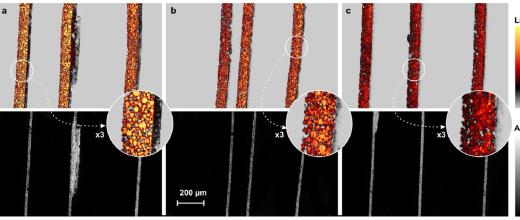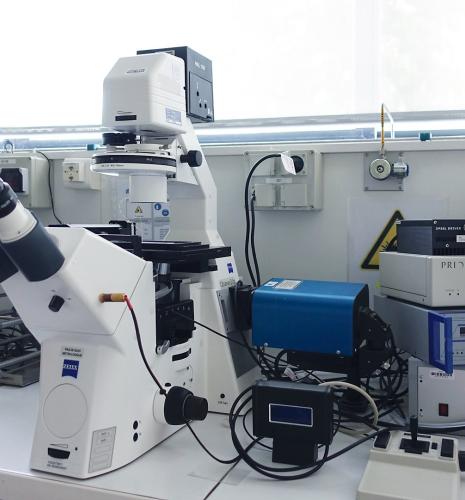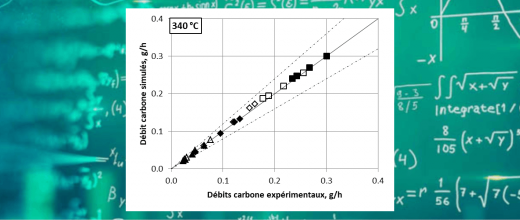
News in brief
SC4 - Deep learning for fluid characterization
Data from NIRS are processed mathematically, via chemometric approaches, generally using a Partial Least Squares (PLS)-type model. This linear methodology is aimed at establishing a statistical relationship, represented by the maximum covariance, between an explanatory variable X and a response variable y. It has been successfully used at IFPEN to predict the properties of oil products and, in recent years, it has mirrored the evolution of new energy technologies (NET)...

News in brief
SC2 - Biofuel production: understanding and controlling corrosion by renewable feedstocks
Biofuels are one of the components of the transition to renewable energies, and their use is an effective way of decarbonizing transport. However, they are produced from feedstocks whose composition can affect the steel equipment used for their conversion. For example, the hydrotreatment of vegetable oils and animal fats leads to the exposure to high concentrations of oxygenated compounds, naturally present in the initial feedstock or resulting from their conversion...

News in brief
Ageing of technical fluids in multifunctional environments
By combining battery, electric machine, power electronics and mechanical transmission, the electric vehicle is an example of an application that combines a range of constraints for the formulation of technical fluids. In recent years, there has been renewed interest in the study of the latter for the transport sector...

News in brief
The in silico creation of molecular structures
What chemical engineer has never dreamed of having access to a tool that can directly identify a fluid (pure substance or mixture) on the basis of characteristics necessary to a given application context? This Holy Grail could become a reality thanks to the field of Chemoinformatics and its methods...

News in brief
Microfluidics and Chemoinformatics: a highly complementary approach to studying material/fluid compatibility
Pour de nombreuses applications industrielles, comme le recyclage chimique des plastiques, ou encore pour assurer la compatibilité entre polymères et nouveaux carburants, il est essentiel d’anticiper les interactions entre matériaux et fluides...

News in brief
Cheminformatics and its descriptors: application to polymer/fluid compatibility
Ensuring compatibility between polymers and fluids is essential in numerous industrial sectors: in the automotive sector, for example, the resistance of materials used in the fuel supply system is a vital consideration.

News in brief
Flair Suite™: supporting environmental and industrial gas monitoring
Today, air quality is an issue of major concern when it comes to public health. To protect it, it is necessary to reduce emissions but also monitor global chemical changes taking place in the atmosphere. From the economic and safety points of view, it is also important to monitor industrial gas emissions. It was to tackle these different aspects that IFPEN’s researchers began developing a range of technological solutions, within the context of the Flair Suite™ project.

News in brief
Rock-Eval®: supporting soil research for the climate challenge
One way to decrease the amount of atmospheric CO2 is to reduce greenhouse gas emissions of fossil origin, but it is also possible to increase the quantities of carbon stored in the soil. (...) In the current context of climate change, understanding the evolution of carbon in the ground is critically important. It is for this reason that IFPEN wanted to study the potential offered by Rock-Eval®, a flagship of oil research...

News in brief
Pretreatment and deformulation of biomass-based products
The development of production processes for fuel and platform molecules from lignocellulosic biomass requires knowledge of the chemical composition, on a molecular scale, of the various liquid products generated...

Individual page
Maria-Fernanda ROMERO-SARMIENTO
Research Engineer / Technical Advisor
Organic Geochemistry PhD. HdR.
Sciences of the Earth and the Universe HDR
Organic Geochemistry PhD. HdR.
Sciences of the Earth and the Universe HDR
Maria-Fernanda Romero-Sarmiento joined IFP Energies nouvelles in 2010 as a research scientist in organic geochemistry. She holds a Ph.D. in Organic Geochemistry from the University of Lille (France)









